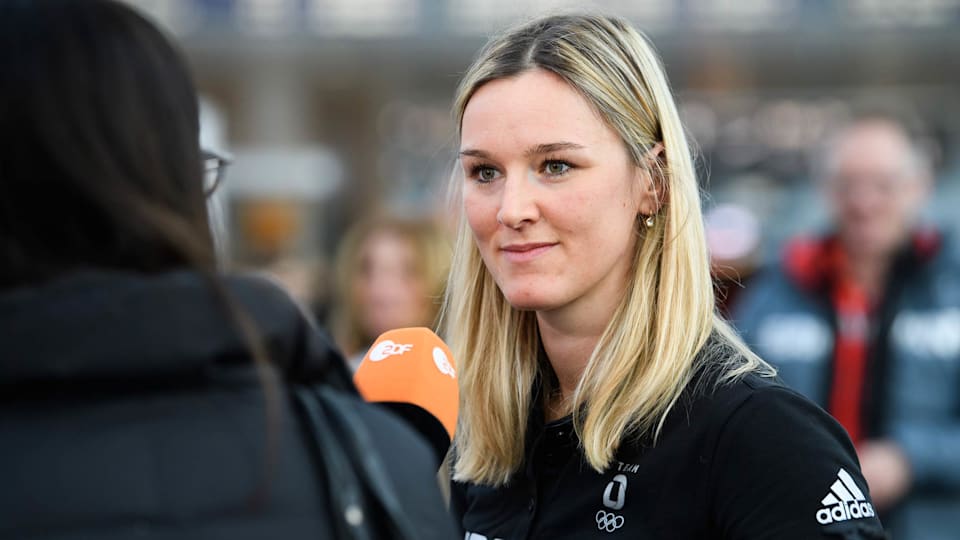Gender equality: harnessing communication for public awareness
The International Olympic Committee (IOC) is “test-driving” draft guidelines for a balanced portrayal of male and female athletes in all forms of communication. As part of this it is supporting World Radio Day, which this year places a special focus on gender equality in sports broadcasting.

Gender-biased attitudes and behaviours can be conscious or unconscious. A real change will be achieved only by raising awareness of what constitutes gender bias in the portrayal of female vs. male athletes, be it on TV, in newspapers, online or on radio.
As UNESCO today celebrates World Radio Day to raise awareness among the public and the media of the importance of radio, it is this year focusing on gender equality in sports broadcasting, with the theme “Radio and Sport”.
A timely focus, as a pilot has been launched at the Olympic Winter Games in PyeongChang to try to raise awareness and help achieve a balanced portrayal of men and women in sports coverage. This follows the 25 recommendations approved last week by the IOC Executive Board (EB) and a holistic review of gender equality within the Olympic Movement. Avoiding portraying gender bias and stereotypes is one of the key actions of the Gender Equality Working Group, led by Marisol Casado, an IOC Member and President of the International Triathlon Union.
The IOC and Olympic Broadcasting Services (OBS) shared draft Portrayal Guidelines with their stakeholders ahead of the Games to explore how these can be used within their own activities. The guidelines are intended to raise awareness of what constitutes gender bias in the area of portrayal (how women and men are presented and described). Providing examples and principles, they also include suggestions on some best practices to help with balancing reporting and communication, and how can the bias be overcome in all its forms – notably in the areas of print, digital, radio and broadcast – to achieve gender equality.
The IOC’s stakeholders and OBS are being asked to share their feedback and comments after the Games, which will be used to finalise a set of guidelines on gender portrayal that can be rolled out throughout the IOC and the broader Olympic Movement and its partners. By developing this document in a collaborative manner, and with feedback from specialists in various fields, the goal is to create a robust document that will contribute to advancing gender equality in all its forms.
Recognising the role of radio in giving gender equality a “voice”, in 2016 the IOC awarded Dagim Zinabu Tekle the IOC Women in Sport World Trophy. An Ethiopian sports journalist, he founded a radio programme dedicated to inspiring women and girls to be more active in sport and pursue their dreams. The programme showed that women can engage in sport just as much as their male counterparts. Driven by the belief that the sports media is an essential transformation tool in his country and internationally, Teckle’s efforts are already proving fruitful. His radio programme has since influenced various clubs and federations to open their doors to women to participate in sport and has created new opportunities for them in sport.